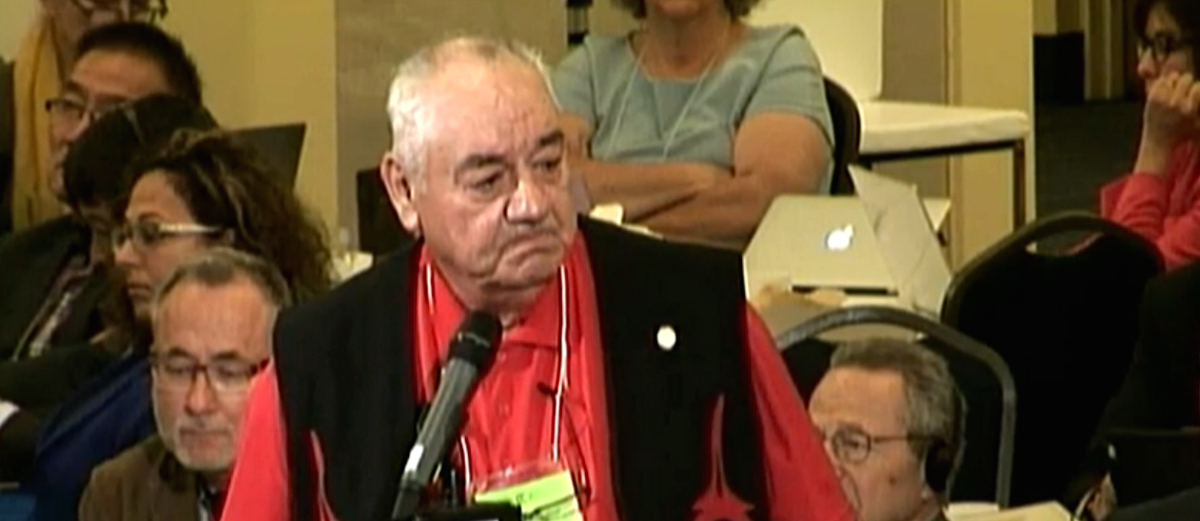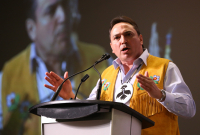Support strong Canadian climate journalism for 2025
Leaders of three Saskatchewan First Nations say they are declaring a health crisis, citing a three−year spike in deaths due to violence, addictions and health issues.
The Keeseekoose, Cote and Key First Nations hope their declaration will prompt the Sunrise Health Region and the federal and provincial governments to meet with the Saulteaux Pelly Agency Chiefs Health Alliance to discuss a plan of action.
Former Keeseekoose chief Ted Quewezance, now a senator with the Federation of Saskatchewan Indian Nations, says lack of access to quality health care is the primary cause of the deaths.
He says philosophical approaches such as the harm−reduction strategy — which aims to help drug−users manage their addictions in a safer way — have failed.
Members of the alliance want the federal government and health region to review the opening of a methadone clinic in Kamsack, Sask.
They point to a Health Canada report that found addiction issues escalated following the opening of the clinic.
"The federal and provincial governments have become pushers of drugs as they fund narcotics and opioids under the government drug plan," says Quewezance.
The 63−year−old estimates he has been to more than 400 funerals.
"An average Canadian citizen goes to seven to 10 funerals a year and my chiefs have been to over 50 and 60 funerals in the last year and a half," Quewezance told a news conference Monday.
"Could you imagine going to a funeral every week?"
Cote First Nation had four deaths on Feb. 27. Chief Norman Whitehawk says the community is in a "constant state of grieving."
Quewezance says there are two funeral homes in Kamsack but the community is still struggling to get a second nurse they asked for during 27 months of negotiations with governments.
They want more front−line doctors and nurses on reserves who can assess, diagnose, resuscitate and stabilize patients for transportation.
"Pamphlets do not heal our people," says Quewezance. "It’s primary health care that’s needed."



Comments